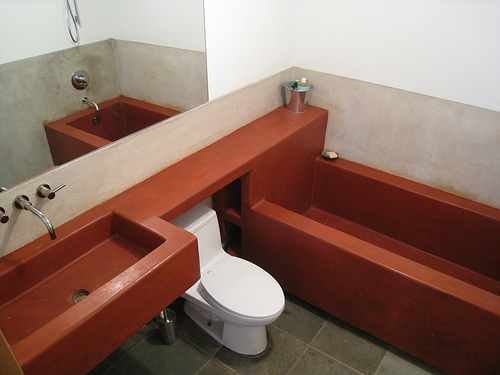 A common issue for business owners is understanding the goal of their website.
A common issue for business owners is understanding the goal of their website.
Many go into a new website project with the idea of just getting it up because they need a website or because their competition has a website. It’s fine to go into the project with this being the catalyst, but as you get deeper into the process there needs to be a more refined focus.
What is the refined focus?
Well, the good news is the focus is the same for nearly every website.
In this post you’ll learn what the focus should be for your website and how to achieve the goal.
Focus on Selling
Selling.
It’s not a bad word, but some people shudder when they hear it. Get past that initial reaction. Selling is good. Selling is your friend. Your website needs to sell.
In business it’s your job to sell. You probably do it every day. You’ll take phone calls. You’ll meet people in person. You’ve become so good at selling to people face-to-face that you don’t even think about the process anymore. You know what works and you use the formula to close the deals. It’s good for you and for your customers.
Your website needs to sell for you when you can’t be there.
A Website That Sells: Content and Design
Creating your website becomes much easier when you have the single focus of selling. Distractions are easy to remove when you realize the only thing that’s important on your website is selling.
To start, go through the process of a sales call or a sales meeting. Someone discovers your company and they call to speak with you. You go into sales mode and the conversation takes it natural course.
Write this entire conversation down.
Write down the questions you ask. Write down the questions you answer. This is all content you’ll need for your website.
Go through the process. The pages you’ll need should become clear. What you’ll need to include on each page should become clear.
A Quick Example
Most people will hear about your company from someone. They’ll visit your homepage. They’re just doing a little research about your company and how you might be able to help them. Let’s say your business is plumbing.
Someone is interested in a new bathroom design for their home. They ask a friend for a referral. The friend suggests Joe’s Plumbing. The prospect goes to the Joe’s Plumbing website. They see a headline that says Joe’s Plumbing. They see a subheadline that confirms bathroom renovation as one of the services offered.
Joe, the owner, knows that at this point most people are curious about how the process works. Joe includes content on the site that explains how long a project might take. He’ll use examples from his previous work to showcase how a specific project is completed, how long it takes and how much it costs.
Once the person has looked through that content they have their questions answered, but they might not be ready to purchase. After all, they haven’t met Joe before. How can they trust him?
The person realizes there is some content on the website. There are guides and blog posts about how to do some basic plumbing around the house. The person reads an article on how to install a new faucet on the kitchen sink. The article is really helpful. The person feels they can do this on their own now.
Before leaving the site the person heads over to the About Us page and learns a few more details about Joe and his crew. They can see a photo of Joe (or maybe even a video). The person now feels like they know Joe. They feel like they can trust him because they’ve read his content and know what he’s all about.
There is also a little bit of the Reciprocity Theory happening. The visitor received knowledge about fixing faucets and likely feels the urge to return the favor.
A call is made and the person is already sold on Joe’s service. All Joe needs to do is setup the schedule and get things rolling.
That’s how you create a website.
With a clear focus on selling your website process becomes much easier. Focus on how your customers interact with you in real life and take that process to your website.
Image credit: Jeremy Levine Design





